Admittedly, both of these events carry misleading titles – there was no pie to be eaten on Pi Day, and SEGA Science Day didn’t include any video games (nor did the school have a hedgehog mascot, disappointingly). These minor deficiencies were overcome, however, as they did serve as great forums for spreading the word of Shika, as in hands-on math and science.
This year marked the 10th annual Pi Day celebration in Tanzania, and it was held in a large gated park at Mnazi Mmoja grounds in Dar es Salaam. This was the first year that the event spanned two days, catering to its first-time theme of hands-on teaching aids in mathematics. What could be more fitting to the Shika na Mikono team?! As luck would have it, I knew the man running the Pi Day event from a math conference that I attended in Arusha a couple years ago, so he remembered our group and invited us to come and present some of our best math teaching aids.
The first day was mainly an exhibition for the public. Teachers and students from nearby primary and secondary schools came to see and use the different teaching aids on display. We weren’t the only ones with great ideas to show – there were simple games using fraction flashcards, as well as interactive computer programs for calculating volume and surface area (the program was actually made by Form IV students!). Our Peace Corps tables definitely carried a unique theme of using local materials. Our goal was not only to show interactive ways of teaching math topics, but also that they can be done cheaply and easily even in the most rural schools. The constant flow of engaged students kept us busy for hours, until the daily afternoon storms rained out our parade.
The second day was the actual Pi Day, March 14th. A select few of the teaching aid presenters were asked to come back to show off their displays for the guest of honor, the Vice President of Tanzania. The big sherehe (celebration) consisted of a morning parade through the streets of Dar by students carrying picketing signs calling for improvements in math education. Following that was a children’s dance performance, which I later found out was actually a native dance to Botswana, called Makilikili. Many invigorating speeches later, the VP walked around to the different teaching aid displays, so we all had a chance to greet him in Swahili, which he was a little surprised to hear coming from us not-so-Tanzanian-looking volunteers. The rest of the afternoon was again open to the public, so we handed out a lot of brochures and copies of our math and science teaching manuals to help spread the word about Shika.
Still reveling in the glory of our successful Pi Day extravaganza, the Math Team packed up its bags and equipment and hit the road for Morogoro, using the power of Tanzanian buses to magically transform a 3-hour trip into an impressive 6-hour safari. We were received by the rest of our Shika team, new and old, for our yearly crossover meeting as we began the process of handing over the reins to next year’s class of mad scientists. After a day of discussing future goals and visions for the group, we took advantage of having everyone together in one place by putting on a Science Day event at the school of another Peace Corps Volunteer living in Morogoro. Our forces combined, we were determined to put on a show for the girls of SEGA Secondary, a young school of only about 130 students, most of which are orphans or have been displaced from their original homes.
Altogether there were 11 of us, so we had plenty of Shika-power to distribute among the kids. We veterans tried to take a back seat as much as possible, since the point of having the event was for the new members to gain some experience in planning and preparing for similar trainings in the future. The girls were split into groups and rotated among 4 subject stations: Math groups played number line games and solved tangram puzzles; Physics groups built straw towers and made paper helicopters and airplanes; Biology groups taste-tested different flavor mixtures and played a food-gathering game about evolution; Chemistry groups learned about combustion and used vinegar and baking soda to blow up balloons with carbon dioxide. At the end of the day, we gathered everyone together for the grand finale, where we set off a reaction to make elephant toothpaste (https://www.youtube.com/watch?v=ezsur0L0L1c) and lit a sufuria (pot) full of smoke bombs.
The SEGA girls were incredibly grateful for us coming and loved every second of our shenanigans. We all left Morogoro feeling accomplished and assured of the continued success of the Shika Team. Not that any of us old-timers are ready to let go of it just yet, however – we’ve still got a few months left until we go out with our final bang.
In the same light of everything else I’ve talked about in this post, I also received wonderful news recently that my grant proposal for putting on Science Competitions in this country has been approved!! The project is now listed on the Peace Corps website (https://donate.peacecorps.gov/index.cfm?shell=donate.contribute.projDetail&projdesc=14-621-010) and is open to receive donations. PLEASE PLEASE PLEASE consider helping out with this if you’re able. The entire Science Day event at SEGA was done on a budget of under $50, and we were able to give 130 girls a day that they will never forget and that has certainly allowed them to see math and science in an exciting way that they’ve never seen before. For my project, I want to hold 5 or more multi-day conferences / teacher trainings to further the reach of the Shika philosophy and try to get as many Tanzanians as possible to see the advantage of interactive learning and a hands-on approach to science. Thank you in advance for taking an interest in this too!
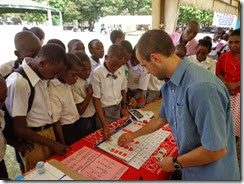
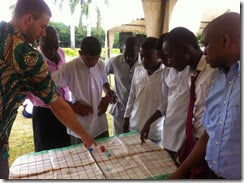
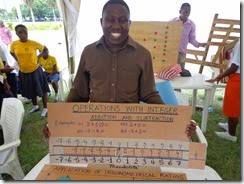
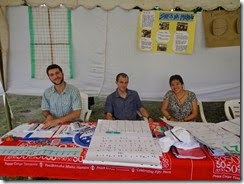
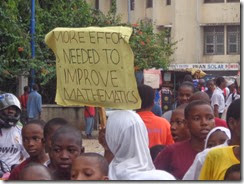
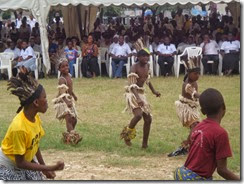
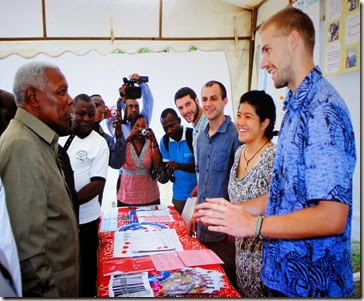
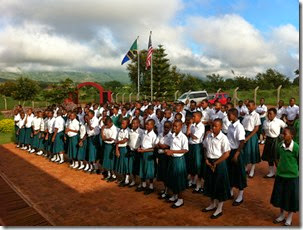
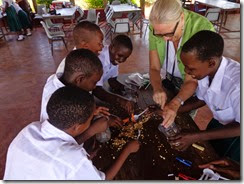
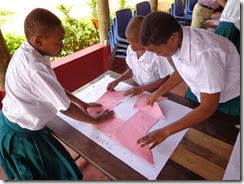

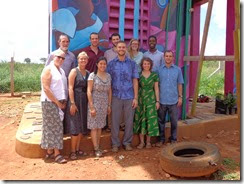
No comments:
Post a Comment